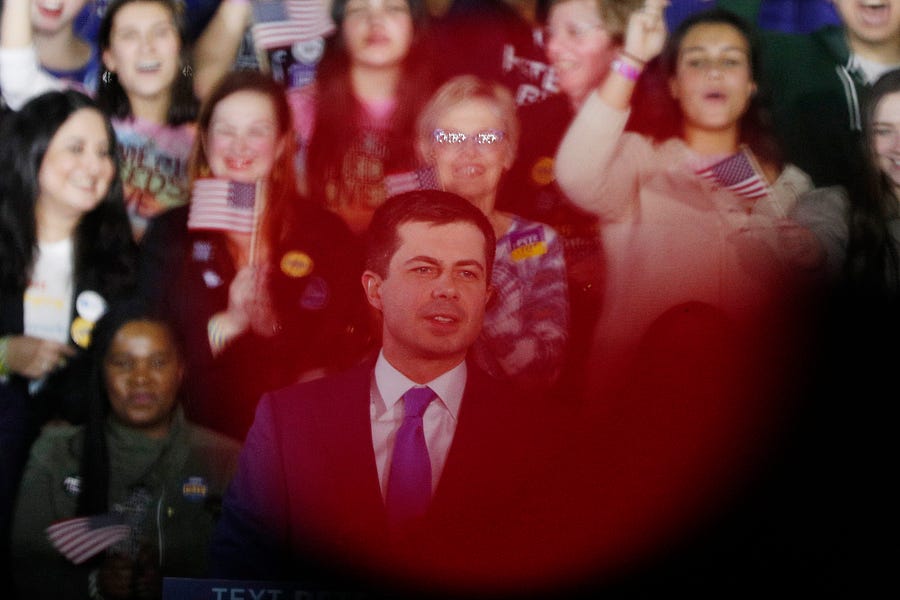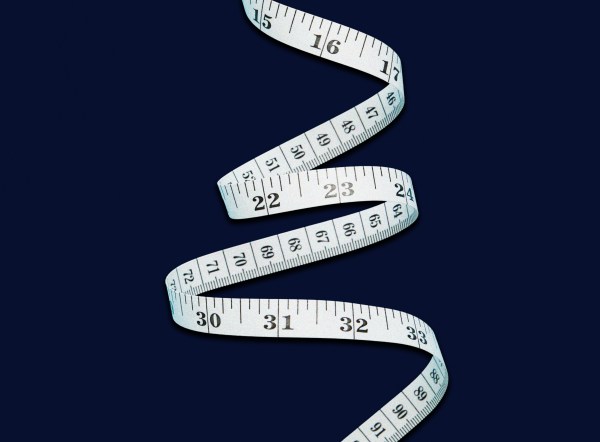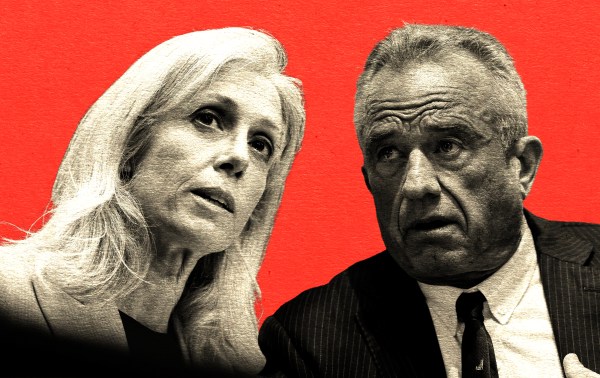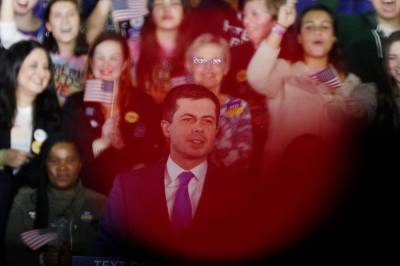Back when we thought the Iowa caucuses would, over the course of Monday night, offer some insight into the state of the Democratic primary, we thought it would be interesting to have Jonah Goldberg, our editor in chief, and Sarah Isgur, staff writer and a veteran of three presidential campaigns, debate a few points regarding the night and its outcome. Instead, well, we got chaos and confusion but no results, and they called it a night. They resumed their debate on Tuesday, once the (partial) results were released.
1. Should Iowa Get to Go First?
Jonah: First, kill the Iowa caucuses.
Let me give a full airing of my biases.
I would prefer to get rid of the entire primary system, restoring strength and vigor to America’s political parties. If that means a return of smoke-filled rooms, so be it (the Constitution itself was written behind closed doors with pipe smoke filling the air). But my bias runs deeper still. Even if I loved the primary system—as I used to—I would still favor getting rid of the Iowa caucuses. This was my position long before everyone started freaking out that it is too white. In fact, it was my position before anyone could have imagined that the Iowa Democratic party would outsource its digital vote-counting operation to the finest computer programmers the Amish community could spare.
Why? Let me count the ways. Who died and made Iowa the kingmaker? By monopolizing the first-in-the-nation caucuses every four years, a whole crony cottage industry has built up around it. Nowhere in the Federalist Papers does it say that presidents must first hire the best and most expensive ward-heelers and ad buyers in the Hawkeye State. Then there’s the fact the Iowa caucuses are distortive of public policy. There’s no way we’d have to buy unwanted and unnecessary ethanol—aka government moonshine—in 49 states were it not for the crony capitalism demanded by the Iowa political class.
Finally, let’s not forget the actual process itself. All night Monday, pundits prattled, “This is what democracy looks like.” (At least until it was clear that we were witnessing a screw up of biblical proportions.)
No, no, this isn’t what democracy looks like. Democracy looks like people going into a voting booth and casting a vote in secret. There’s no sacredness of the ballot box, no freedom of conscience. This looks less like democracy and more like a meeting of a Swedish homeowner’s association’s by-laws committee deciding whether Klaus can be allowed to compost on his own property. In these caucuses everybody knows who you’re for and who you’re against. And if your first choice doesn’t make some arbitrary threshold, a mob hectors you to “vote” for your second choice, often enticing you with baked goods or pickled lutefisk or threatening to punish you the way Midwestern mobs always punish heretics and traitors: with audible sighs of disappointment and passive aggressive faint praise.
Sarah: Long live Iowa.
Admittedly, this has not been a great advertisement for the Iowa system. I can’t defend the underlying cluster and I certainly won’t defend the state party’s inability to communicate even the most basic facts to those of us who think an explanation might be in order. That all being said (and if I were the Buttigieg campaign, I’d only be speaking in four-letter words), the alternative of a national primary is far, far worse in my view.
Iowa is like the NBA’s one-and-done rule that all but requires players to spend a year playing college basketball before going into the NBA draft. Or, to mix metaphors, it’s like a closed circuit race track instead of a road race. Iowa forces candidates to compete on an equal playing field in a small(ish) state with a low-cost media market before going to the multi-state contests like Super Tuesday where money and name ID can easily win the day. Just look at Mike Bloomberg. He chose to skip Iowa and spend hundreds of millions of dollars on TV ads for the very reason that his money would be able to move numbers in states like California, where voters never expect to meet the candidate. Every four years, more than 150,000 Iowans from each party with a contested primary take their responsibility seriously and often go to meet four or more candidates in person before making up their mind.
And if we want to talk about investing in our civic institutions, then the Iowa caucus should be top of our list. One of the most fun things about being on the ground in Iowa for the Democratic caucus are seeing all the “democracy tourists” from around the world who come to see friends and neighbors spend their evening in high school gymnasiums trying to persuade one another about who should run the country as every vote is recorded on a yellow legal pad. If it feels quaint, its because it is. The Iowa caucuses are the opposite of twitter’s rage and name-calling; its up close, personal, and all about persuasion. And that’s a good thing.
The solution to this week’s (cough cough) snafu is competent election managers less easily duped by snake oil app salesmen—not the abandonment of the first-in-the-nation system.
2. Does Biden’s Bad Showing Change His Electability in the General Election?
Jonah: This doesn’t change Biden’s electability.
As of this writing it looks like Biden didn’t have a great night Monday. I say “as of this writing” because even on Tuesday evening the results are incomplete.
One can only take so much excitement, watching people move from one side of a gym to another like a curling match without any of the equipment or ice or beer. Anyway, my position on this is perhaps too clever by half, but I think a poor showing for Biden doesn’t hurt his electability too much. It does hurt his chances at getting the nomination. But it seems axiomatic to me that if he can recover well enough to actually win the nomination, losing the caucuses will be remembered as one of those character-building or campaign-toughening setbacks that every winning campaign goes through. The only problem: I think losing Iowa badly makes it harder for Biden to get the nomination.
The good news for Biden, if he did badly, is that the blow of a poor performance has been softened by the spectacular screw-up of the Caucus Un-Count. If it turns out Biden did badly, he can say “Who cares about Iowa? The clocks on their VCRs are probably still blinking ‘12:00.’”
(Young people won’t get the joke but they’re not voting for Biden anyway.)
Sarah: Biden now has an electability problem.
Going into Iowa, Biden’s biggest argument was his electability against Donald Trump in the general election. The theory went that Biden was best situated to win over Obama-Trump voters in Pennsylvania, Michigan, and Wisconsin because he speaks their language and hasn’t embraced some of the more radical policy proposals of his opponents. But this week’s fourth-place (at least with 71 percent reporting) finish in Iowa just put a big, gaping hole in that argument.
First, winning back voters who are now psychologically invested in Trump’s presidency after voting for him 2016 was always going to be an uphill battle as long as Trump’s on the ballot. Second, there’s another often overlooked reason why Clinton lost: 4.4 million Obama voters simply didn’t vote at all in 2016. And Biden’s Iowa loss—getting maybe as little as half the votes of Sanders—highlighted his key weakness when it comes to getting those 4.4 million to turnout in 2020. If November is shaping up to be a base election—in which both sides try to energize their most ardent supporters to boost turnout—Biden has a problem. Even if Biden can win over some independent voters, his mediocre showing in Iowa provides fodder to the argument that he may do so at the expense of the Democratic base voters—and that sounds like 2016 all over again.
3. What Was the Biggest Surprise?
Jonah: Bernie vs. the field.
My biggest surprise was going to be a data-rich analysis of how the anti-Bernie bloc is very strong but more divided than I would have guessed. Going in to Monday night, the whole race seemed like it was narrowing down to Bernie vs. Biden. But as the scattered, anecdotal, and powerfully unriveting results trickled in, it actually seemed like it’s a Bernie vs. the field race, with Buttigieg, Warren, and even Klobuchar doing much better than expected and Biden worse. I say seems, because as of this writing, the results are not complete. Proving that, like a busted grain elevator in Davenport, the Iowa caucuses don’t work on so many levels.
Sarah: Where’d everyone go?
Democratic officials were predicting high turnout heading into Monday night, but as the numbers started to come in (or whatever was happening) they changed their tune and said it was “on pace” to match 2016’s turnout of 170,000, which was well below 2008, when 240,000 participated. Of course, we don’t have the final numbers because its only been TWO DAYS, but this would be a not good, very bad sign for Democratic turnout heading into November. And in what is usually a good indicator of enthusiasm, an NBC entrance poll also showed that only 35 percent of attendees were first-time caucus goers this time around—down from 44 percent in 2016 and a whopping 57 percent in 2008. Given the sheer number of candidates in the field and the anti-Trump factor, this should be scaring the pants off the staffers at DNC headquarters looking ahead to the general election.
Photograph of Pete Buttigieg in Des Moines, Iowa by Tom Brenner/Getty Images.








Please note that we at The Dispatch hold ourselves, our work, and our commenters to a higher standard than other places on the internet. We welcome comments that foster genuine debate or discussion—including comments critical of us or our work—but responses that include ad hominem attacks on fellow Dispatch members or are intended to stoke fear and anger may be moderated.
With your membership, you only have the ability to comment on The Morning Dispatch articles. Consider upgrading to join the conversation everywhere.